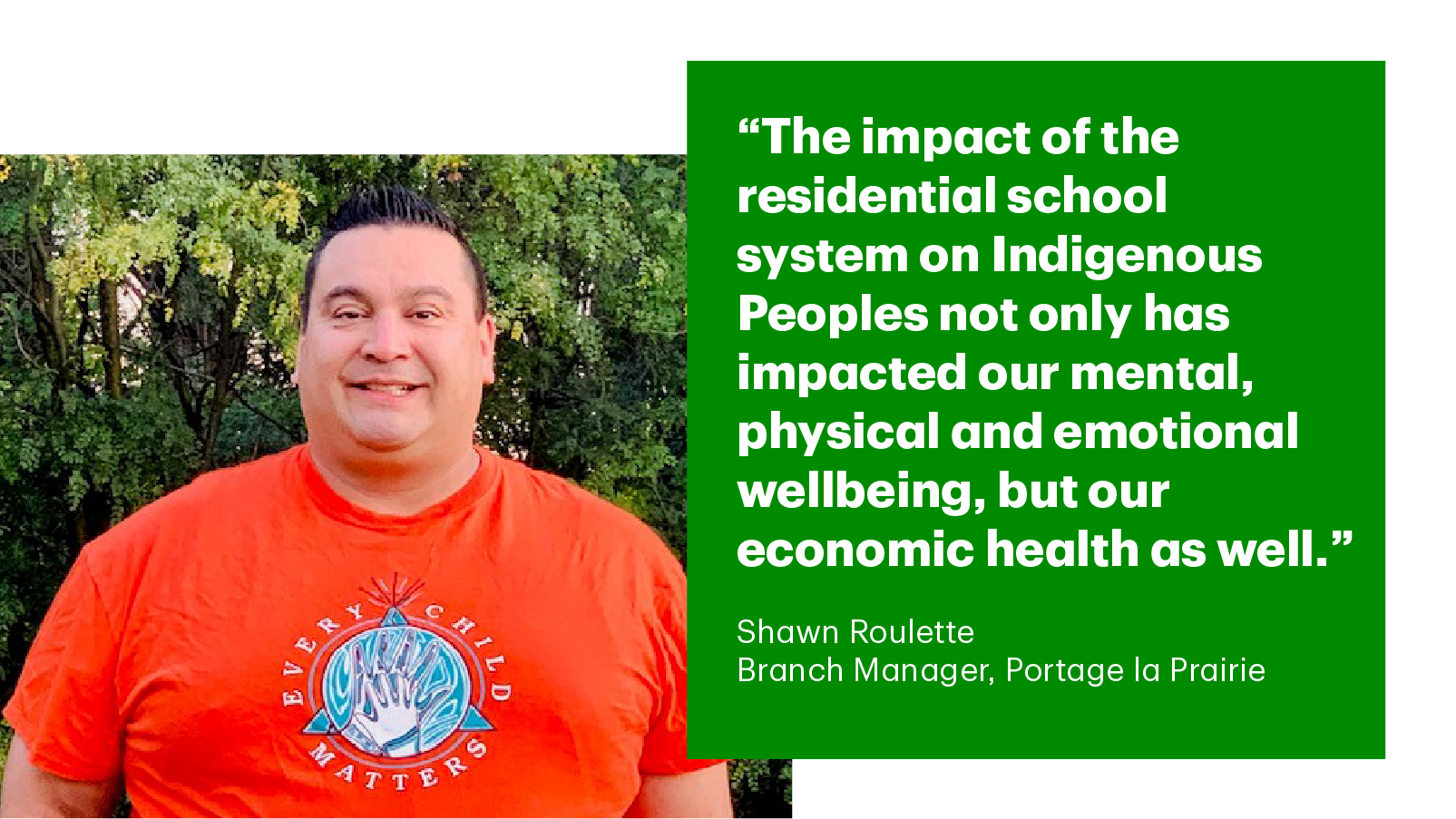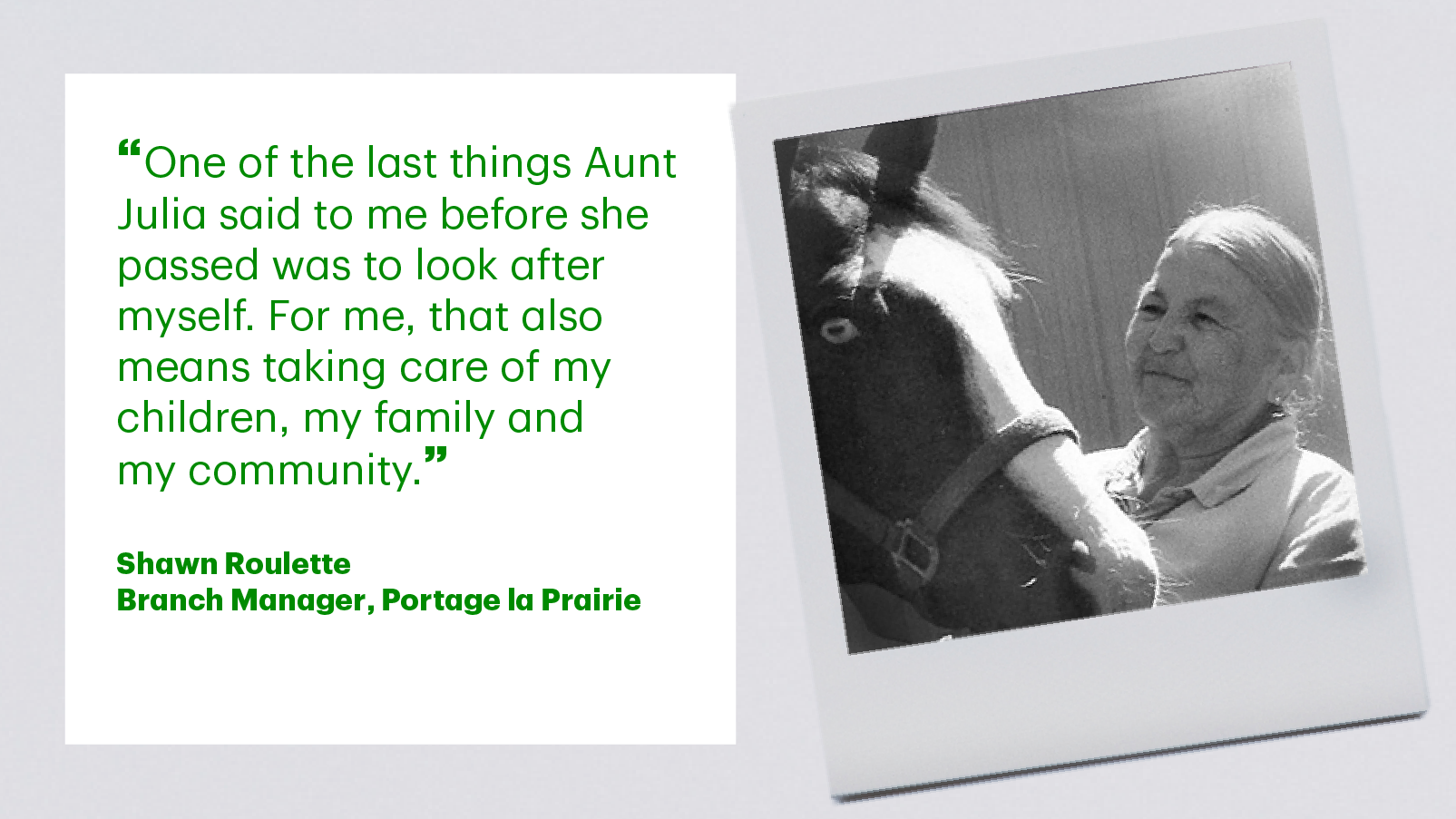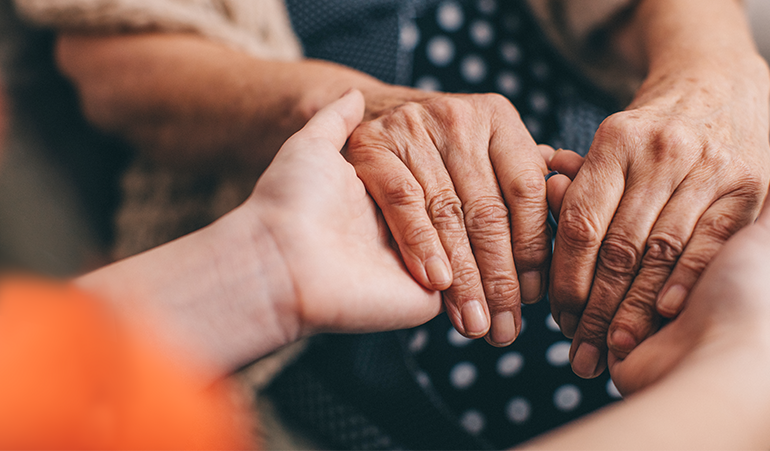My mother was six years old the first time she met her older brother and sister.
One day, she was in her family's home near the Sandy Bay First Nation near the Western shore of Lake Manitoba, when my Aunt Julia and Uncle Tony walked into the house. Julia was 15 and Tony was 17. To my mother, they were complete strangers.
Until that day, for my mother's entire life, Julia and Tony had been living at the nearby residential school, and it was only when the school was shut down that they were sent home.
Unfortunately, for families in our community, and in many communities across Canada, this was an all-too-familiar occurrence.
For more than a century, families from the Indigenous community saw their children taken from them – sometimes disappearing without a trace, sometimes forcibly removed from their homes – and put into the residential school system where many of them suffered horrific abuses, all because of their race and culture.
My mother, Susan, is Ojibway. She comes from a large family of twelve children, all of whom were either forced into Indian day school – like my mother – or residential schools where the children lived apart from their parents and their community, like Aunt Julia and Uncle Tony.
Today, I'm proud to be a branch manager for TD in Portage La Prairie, just 40 minutes from where my mother grew up. And while sometimes, it feels like a different time and place, the truth is that this year has brought with it some tough reminders that our history is not that distant.
This year feels different
Like so many Canadians, I was saddened and angry by the discoveries of mass graves at former residential school sites this year. But I wasn't shocked.
The incredible loss and the lasting impacts of the trauma is a pain that has been felt and continues to be felt by my family and Indigenous communities across Canada.
For us, the horrors of the residential school system aren't new revelations. The trauma suffered by my family and others like them is woven into our shared history; it's a part of our family tree. It's not something that you're always aware of, but like a faded picture on the wall of your house that you don't pause to look at very often, it's always there.
The brutal legacy of the residential school system is something that Indigenous Peoples have lived with. Knowing about the kids, the torture, the unmarked graves – we always knew this had happened, but no one was listening, until now.
Things feel a little different this year. As we approach the National Day for Truth and Reconciliation, it feels like, at the very least, Canada is owning up to its past and ongoing history. Like the conversation has finally started.

Other families were less fortunate
Other families were less fortunate than my mother's. My mother eventually got to meet her brother and sister, but for many families, the grief, anger and sadness of not knowing what became of their children will never subside. Many children never came home, never got to see their parents again, or meet their younger siblings.
Even for those who did return, life wasn't easy. My mother said her siblings were hardened children after they came back, repeating some cycles of violence. For decades, the horrors of the abuse that my Aunt Julia and Uncle Tony suffered were locked in silence.
My Uncle Tony never really recovered. He doesn't talk about what happened.
For years, Aunt Julia was the same. We never heard about her experiences. It wasn't until earlier this year when she became ill that she started sharing her stories with us for the first time.
Sadly, she passed away this summer. It's not an exaggeration to say that what happened to her as a child in that residential school shaped her entire life.
For my mother, the death of her sister combined with the discoveries of the unmarked graves this summer has forced her to confront her own experience in the day school, which she had buried all these years. She's been doing research and working to process her pain, something I believe is happening for many Indigenous Peoples right now.
The impact of the violence and trauma on Indigenous Peoples, families and communities at large is almost beyond comprehension.

Where do we go from here?
Sometimes it's hard to believe that all of this happened just 40 minutes away from my office where I meet with customers every day. Yet, there are days when I continue to see the legacy of generational poverty and struggles caused by Canada's colonial past and the residential school system.
My branch sits within the Treaty One area, and we serve many customers from Indigenous communities. We still see a great deal of generational poverty in our community. Often, when you take the time to understand their stories, you realize just how many have had experiences like my mother, aunt and uncle, and never really recovered.
The impact of the residential school system on Indigenous Peoples not only has impacted our mental, physical and emotional wellbeing, but our economic health as well.
At our Bank, we are working to help people learn to save, plan for retirement, and create wealth. In many ways, it's about breaking a cycle of generational poverty that is prevalent in many Indigenous communities. I believe these efforts are so important, and part of ensuring we are open to helping these individuals means remembering to not judge people too quickly, and to take time to find out why they are struggling.
One of the last things Aunt Julia said to me before she passed was to look after myself. For me, that also means taking care of my children, my family and my community. On this first National Truth and Reconciliation Day, I plan to spend time with my children and connect with my community.
I believe today is as good a time as any for people of different backgrounds to come together and spend time focusing on what we have in common, instead of our differences.
I would encourage people to look at this day of remembrance as an opportunity to share our stories – to help heal the past, to take positive action for the future, and unite in the present.

